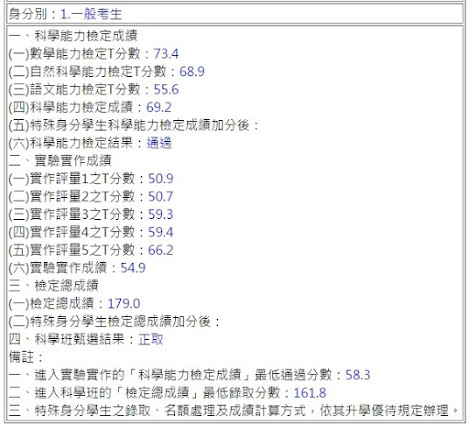TIOJ 2140:殿壬愛序列
TIOJ 2140:殿壬愛序列
題目大意:給你一個數列 $a_1\sim a_n$,每次有三種操作,第一種是將 $a_p = k$,第二種是讓 $l\leq i \leq r$ 的 $a_i = \lfloor\frac{a_i}{k}\rfloor$,第三種是輸出 $a_l\sim a_r$ 的絕對眾數 $x$,也就是 $x$ 的出現次數 $c$ 要滿足 $2\times c > r - l + 1$,否則輸出 $-1$。
解法:首先可以知道每次除以 $k>1$ 除 $\log(C)$ 次就會變成 $0$ 了,所以暴力是沒問題的,再來要找到一個區間可能的絕對眾數如果要暴力找,那可以維護兩個變數 $w, b$,$w$ 代表目前獲勝的數字,$b$ 代表這個數字目前的血量,如果當前數字等於 $w$,那就將 $b$ 加一,否則將 $b$ 減一,如果操作完 $b < 0$,那就將 $w$ 換成當前的數字,$b$ 設成 $0$。這個想法可以用在線段樹上,於是就可以 $O(\log(n))$ 找出可能的絕對眾數。找到可能的絕對眾數後,就可以用 $\text{Treap}$ 找出在 $l\sim r$ 共有幾個數字,最後複雜度為 $O((n + q)\times\log(n)\times\log(C))$,原因是原本的 $n$ 個數字加新增的 $q$ 個數字,每個除 $\log(C)$ 次,每次都會動到 $\text{Treap}$ 花 $O(\log(n))$ 的複雜度。
$\text{Code:}$
#pragma GCC optimize("O3")
#pragma GCC target("popcnt")
#include <bits/stdc++.h>
using namespace std;
#define ll long long
#define TIOJQQ ios::sync_with_stdio(false),cin.tie(0)
#define FOR(x,a,b) for(int x=a;x<=b;x++)
#define pb emplace_back
#define F first
#define S second
#define lpos pos*2
#define rpos pos*2+1
mt19937 seed (time (NULL));
#define rnd(l,r) uniform_int_distribution<int>(l,r)(seed)
const int SIZE = 1e5 + 5;
struct Treap {
int val, siz = 1, prior = rnd (0, 2e9);
Treap *ls = NULL, *rs = NULL;
Treap() {}
Treap (int val) : val (val) {}
};
int siz (Treap *t) {
return t == NULL ? 0 : t->siz;
}
void Pull (Treap *t) {
t->siz = siz (t->ls) + siz (t->rs) + 1;
}
Treap *Merge (Treap *a, Treap *b) {
if (a == NULL || b == NULL) return a != NULL ? a : b;
if (a->prior > b->prior) {
a->rs = Merge (a->rs, b);
Pull (a);
return a;
} else {
b->ls = Merge (a, b->ls);
Pull (b);
return b;
}
}
void Split (Treap *t, Treap *&a, Treap *&b, int k) {
if (t == NULL) {a = b = NULL; return;}
if (t->val <= k) {
a = t;
Split (t->rs, a->rs, b, k);
Pull (a);
} else {
b = t;
Split (t->ls, a, b->ls, k);
Pull (b);
}
}
struct Node {
int w, b;
Node operator + (const Node &x) const {
Node re;
if (w == x.w) re.w = w, re.b = b + x.b;
else {
re.w = b >= x.b ? w : x.w;
re.b = max (b, x.b) - min (b, x.b);
}
return re;
}
} node[4 * SIZE];
int n, q;
int a[SIZE];
map<int, Treap*> mp;
void build (int pos, int l, int r) {
if (l == r) {
cin >> a[l];
node[pos] = {a[l], 1};
mp[a[l]] = Merge (mp[a[l]], new Treap (l));
return;
}
int mid = (l + r) / 2;
build (lpos, l, mid);
build (rpos, mid + 1, r);
node[pos] = node[lpos] + node[rpos];
}
void Upd (int pos, int l, int r, int p, int x) {
if (l == r) {
Treap *t = mp[a[l]], *t1, *t2;
Split (t, t1, t, l - 1);
Split (t, t, t2, l);
mp[a[l]] = Merge (t1, t2);
node[pos].w = a[l] = x;
Split (mp[a[l]], t1, t2, l - 1);
mp[a[l]] = Merge (t1, Merge (t, t2));
return;
}
int mid = (l + r) / 2;
if (p <= mid) Upd (lpos, l, mid, p, x);
else Upd (rpos, mid + 1, r, p, x);
node[pos] = node[lpos] + node[rpos];
}
void Div (int pos, int l, int r, int L, int R, int x) {
if (node[pos].w == 0 && node[pos].b == R - L + 1) return;
if (L == R) {
Treap *t = mp[a[l]], *t1, *t2;
Split (t, t1, t, l - 1);
Split (t, t, t2, l);
mp[a[l]] = Merge (t1, t2);
node[pos].w = a[l] /= x;
Split (mp[a[l]], t1, t2, l - 1);
mp[a[l]] = Merge (t1, Merge (t, t2));
return;
}
int mid = (L + R) / 2;
if (r <= mid) Div (lpos, l, r, L, mid, x);
else if (l > mid) Div (rpos, l, r, mid + 1, R, x);
else {
Div (lpos, l, mid, L, mid, x);
Div (rpos, mid + 1, r, mid + 1, R, x);
}
node[pos] = node[lpos] + node[rpos];
}
Node query (int pos, int l, int r, int L, int R) {
if (l == L && r == R) return node[pos];
int mid = (L + R) / 2;
if (r <= mid) return query (lpos, l, r, L, mid);
if (l > mid) return query (rpos, l, r, mid + 1, R);
return query (lpos, l, mid, L, mid) + query (rpos, mid + 1, r, mid + 1, R);
}
void solve() {
cin >> n >> q;
build (1, 1, n);
while (q--) {
int ty;
cin >> ty;
if (ty == 1) {
int p, k;
cin >> p >> k;
Upd (1, 1, n, p, k);
}
if (ty == 2) {
int l, r, k;
cin >> l >> r >> k;
if (k != 1) Div (1, l, r, 1, n, k);
}
if (ty == 3) {
int l, r, k;
cin >> l >> r;
auto [w, b] = query (1, l, r, 1, n);
Treap *t = mp[w], *t1, *t2;
Split (t, t1, t, l - 1);
Split (t, t, t2, r);
k = siz (t);
mp[w] = Merge (t1, Merge (t, t2));
if (2 * k > r - l + 1) cout << w << '\n';
else cout << "-1\n";
}
}
}
int main() {
TIOJQQ;
solve();
}我的分享就到這裡結束了,如果喜歡我的 $\text{Blog}$,歡迎追蹤!

留言
張貼留言